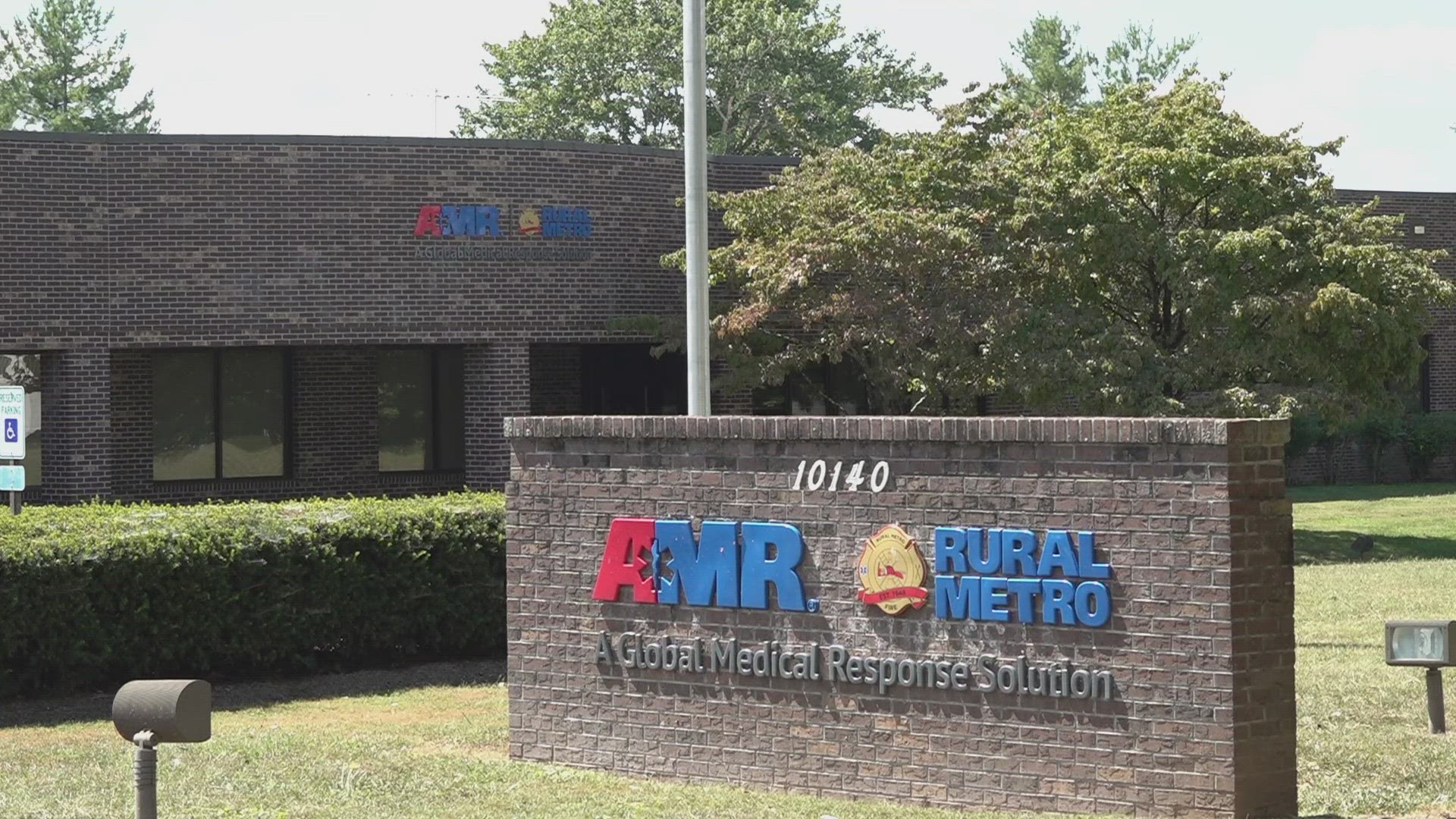KNOXVILLE, Tenn. — A day after Knox County activated its Emergency Operation Center due to a sudden shortage of ambulances to respond to calls for help, American Medical Response said it was taking steps to improve its capacity.
"Several significant events created a window where the EMS system was overwhelmed. AMR worked diligently through the night and into today with the City and County to navigate these challenges, review the system and ensure the highest level of care to the community," AMR said in a press release.
AMR said when Knox County gets significantly busy, there aren't enough ambulances to handle the demand. Joshua Spencer, the regional director, said staffing is one of the problems.
"There's more calls than there are resources available at times," Spencer said. "We don't need more ambulances — we need more staff in the ambulances than we have."
He said for AMR, care comes first. Transport to the hospital may be delayed, but the paramedics are coming when someone calls 911.
AMR's press release said longer-than-normal emergency room wait times and a higher volume of 911 calls combined to create a backlog of units, and as a result, AMR could not promptly respond to 911 calls. AMR said it activated a contingency plan and requested support from neighboring EMS systems.
On Wednesday, AMR announced it would take several steps to improve the stability of Knox County's EMS system. Those steps are listed below, according to AMR's press release.
- Today there is additional availability of 911 ambulances. We have reassigned and relocated ambulances and first responders from neighboring AMR operations.
- Along with the Mayor, the County and local hospital leadership, we have worked together to ensure ER transitions of care will be expedited to avoid long wait times and place ambulances back in service faster to be available for 911 calls.
- While we prefer to wait with patients, we will transport lower-level calls to the ER and transfer the patient to an additional cot provided by AMR, leaving the patient with hospital staff to get our ambulance and crew back on the street. We have communicated clear expectations with our hospital partners on our decreased availability to wait with patients for bed placement.
- AMR’s partner company, Rural Metro Fire, will begin deploying additional ambulances into the EMS system to support Knox EMS capacity.
The press release said the additional ambulances were a temporary fix and until unit bed availability is improved in emergency departments, more ambulances may need to wait at hospitals.
AMR also said the challenges causing the backlog of calls were characteristic of challenges EMS systems face nationwide.
"Staffing shortages, increased misuse of the 911 system and hospital emergency departments, and an ever-growing demand for mental health and social services programs are placing significant strain on the U.S. healthcare system leading to bed placement delays, overcrowding of hospital EDs and misuse of emergency resources for patients with non-life threatening conditions," the press release said.
KFD agrees.
"It is a national problem," said Mark Wilbanks, spokesperson for KFD. "We have a couple of issues. Number one, we've got a paramedic shortage in the United States. We have an EMT shortage in the United States. We have a nursing shortage in the hospitals in the United States."
AMR said it has taken steps over the years to address the challenges, such as utilizing the Nurse Navigation Program. The program transfers 911 calls with non-emergency injuries or illnesses to a "Nurse Navigator" who assesses symptoms and refers people to appropriate medical care, such as a local clinic or urgent care.
AMR also said it is using telemedicine systems to help eligible patients at home, instead of taking them to a hospital.
As of Thursday, Sept. 14, four companies have applied for the EMS ambulance contract including AMR, AmeriPro EMS of Tennessee, FALCK and Priority.

